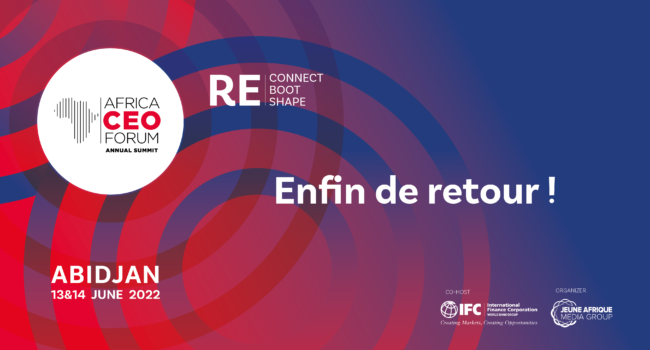
After the unprecedented Covid-19 global health crisis, Africa needs to look inward now more than ever to produce medication and prevent potential pandemics. But does the continent have the potential and necessary resources?
The record is discouraging. While the global pharmaceutical market continues to grow steadily and even surpassed €1 trillion in revenue in 2020, the African market is timidly following this trend with only €15 billion generated in 2021. The continent only represents 3% of the global market. Its infrastructure is far below standards. The World Health Organisation (WHO) states that there should be ratio of one doctor for every 10,000 patients, but in Africa there is currently one doctor for every 25,000 patients. The list goes on and on.
At AFRICA CEO FORUM 2022, five high-level panellists discussed the matter at a session entitled “Unlocking potential in Africa’s pharma industry”.
To respond to this worrying situation, Ivorian Minister of Trade, Industry and SME Promotion Souleymane Diarrassouba first recognised the weakness of the African pharmaceutical industry. He said that there were only 375 pharmaceutical companies in Africa, whereas India and China have 5,000 and 10,000, respectively. In Côte d’Ivoire in particular, the minister stated that there were currently eight such companies. But efforts are underway which will bring the total to 14.
Ramzi Sandi, CEO of SAIPH Laboratories, spoke optimistically of Africa’s ability to supply its own medical needs. He said that in his homeland of Tunisia, for example, they are able to cover 75% of pharmaceutical demand. “In Tunisia, three out of four medications sold are produced locally. The quality of medications is no longer a problem. We already have the expertise”, he commented.
And he is not wrong. South Africa and Morocco also produce and sell medication to neighbouring countries, and Ghana and Kenya are preparing to enter the industry. However, there are many obstacles to overcome before African countries can compete on the global pharmaceutical market.
For Mathieu Lamiaux, Managing Director and Senior Partner at Boston Consulting Group, restrictive regulations and the lack of qualified professionals hamper the development of the industry on the continent. On this matter, Country President and Head of Novartis sub-Saharan Africa Racey Muchilwa pointed out that the entire health ecosystem must first be analysed. Using the example of Kenya, she said that thanks to a partnership between her company and a local university, a number of young people received quality training so they could work in the pharmaceutical industry. Muchilwa recommended that countries create centres of excellence so that young people can receive training and work with companies.
Françoise Lombard, Managing Director of Proparco, believes that while the private sector has a role to play in helping the continent rise to the challenge of pharmaceutical industrialisation, it cannot do it alone. “The private sector cannot play its role in isolation. We need firm and ambitious dialogue with governments”, she insisted. She added that the financial component of the projects should follow a case-by-case basis.
Advancing the continent’s pharmaceutical industry is a major concern. Given the context where reports highlight 70% of known diseases being found throughout the African continent, this would allow for greater access to medication and contribute to the fight against certain societal ills such as counterfeit medications, which is a serious problem according to the Ivorian minister.
If Minister Diarrassouba is to be believed, despite the measures taken by the government in Côte d’Ivoire, 10% of medication sold in the country are counterfeit. But, he announced, although many of these medications are made locally and are easily accessible, this rate can fall.
Ahua Kouakou



